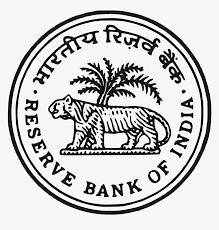CURRENT AFFAIRS
Get the most updated and recent current affair content on Padhaikaro.com
Tokenization
- Vaid's ICS, Lucknow
- 27, Dec 2021

Why in News?
Reserve Bank of India(RBI) had issued guidelines banning the storage of customer card numbers by online merchants and payment aggregators and introducing the concept of Tokenization. These guidelines were scheduled to come into effect on 1 January but have now been postponed to 1st July 2022.
How are the transactions processed today?
There are four-five players involved in processing one card transaction —the merchant, the payment aggregator, the issuing bank and the card network.
Currently, when a transaction happens on a merchant platform, the data is sent to the payment aggregator (PA). The PA next sends the details to either the issuing bank or the card network.
Then the issuing bank sends an OTP and the transaction flows back. The number on which the transaction is built is the card-on-file(CoF).
What do the new guidelines aim to bring?
RBI wants to ensure that consumers are protected from fraud. It, therefore, came up with the concept of ‘tokenization’—a process of replacing actual card details with a unique alternate code called the token.
In this method, CoF will be replaced with a token. But for this, an end-to-end rewiring of the processing leg is required.
E-mandates (recurring payments) will stand ineffective from 1 July.
Card EMIs account for 25% of online e-commerce sales. That option will no longer be available.
Cashbacks/discount offers by banks will be impacted too.
A user may not be able to use the saved card detail on a merchant platform to make a transaction. S/he will have to enter the card details every time a transaction is made.
FACTS FOR PRELIMS:
UNSC Resolution 2615:
The United Nations Security Council (UNSC) has unanimously passed this resolution to permit a carve-out in sanctions against the Taliban to facilitate the delivery of humanitarian aid to Afghanistan.
- This carve-out covers urgently needed humanitarian assistance and other activities that support basic human needs in Afghanistan.
- The resolution (2615) mandates a review of the carve-out every six months.
- It also requests that an Emergency Relief Coordinator brief the UNSC every six months on the delivery of assistance and any obstacles to implementation.
- It also “calls on all parties” to respect human rights and observe international humanitarian law
Tolkappiyam:
- The Hindi translation of Tolkappiyam and the Kannada translations of 9 works of Classical Tamil literature were recently issued by the Minister of State for Education.
- Tamil literature goes back to the Sangam Era, named after the assembly (sangam) of poets.
- Tolkappiyam was authored by Tolkappiyar and is considered the earliest of Tamil literary work.
- Though it is a work on Tamil grammar, it also provides insights on the political and socio-economic conditions of the time.
- Some in the Tamil tradition place the text in the mythical second sangam, variously in 1st millennium BCE or earlier.